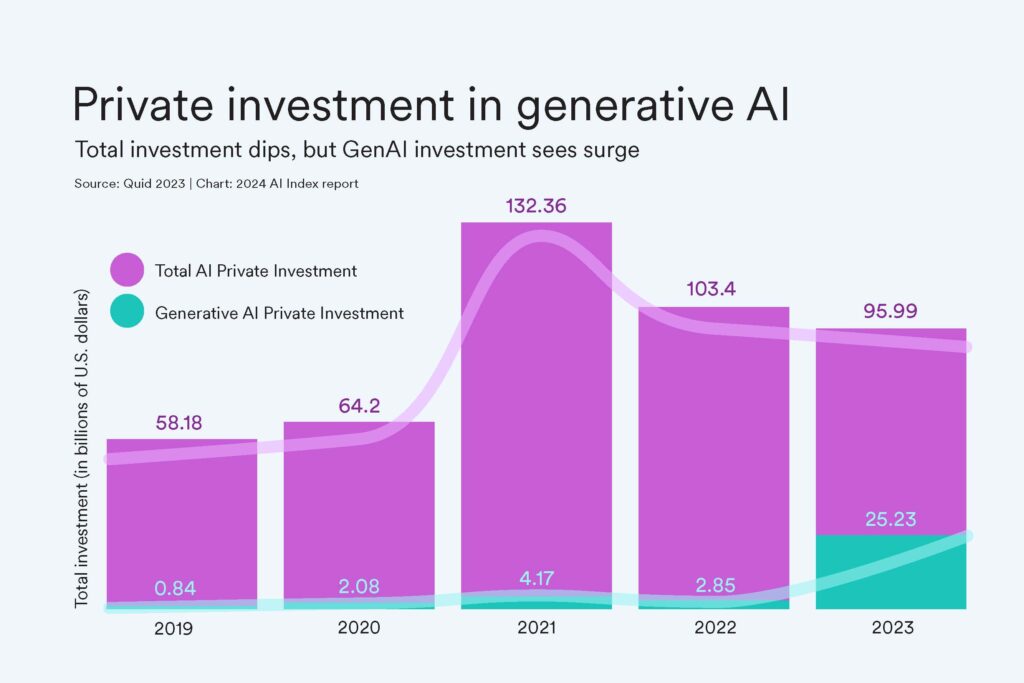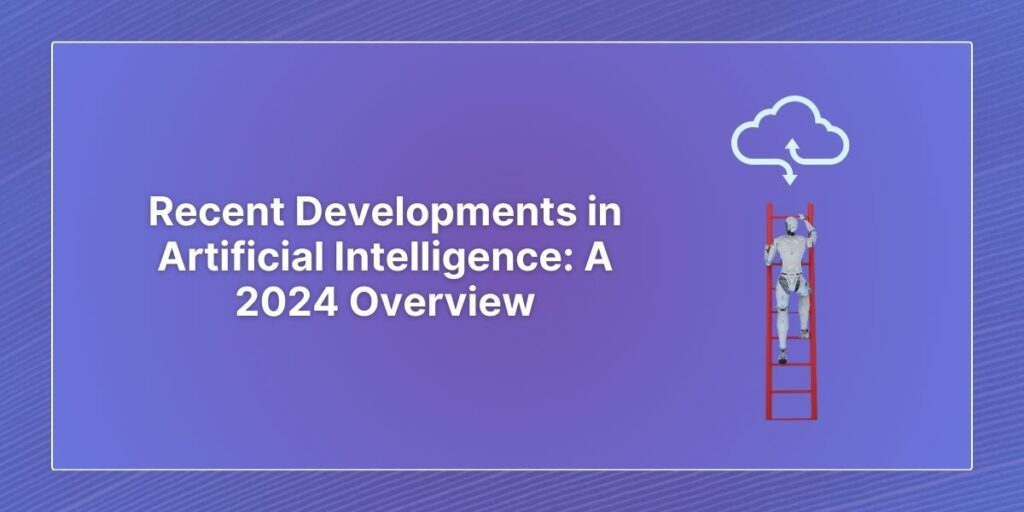Artificial intelligence (AI) continues to evolve rapidly, reshaping industries and daily life. As we progress through 2024, several key trends and developments in AI are noteworthy. This article explores these advancements, highlighting their implications and potential future impact.
Multimodal AI
One of the most significant trends in 2024 is the rise of multimodal AI. Unlike traditional models that focus on a single type of data, multimodal AI can process and integrate multiple forms of input, such as text, images, and audio. This capability allows for more sophisticated interactions and applications, such as generating recipes from images of ingredients or creating detailed multimedia content from textual prompts.

Small Language Models (SLMs)
Smaller language models are gaining traction due to their efficiency and accessibility. These models require fewer computing resources compared to large language models (LLMs), making them suitable for deployment on devices like smartphones. This democratization of AI technology is enabling broader adoption across various applications, providing powerful capabilities without the need for extensive infrastructure.
Generative AI and Customization
Generative AI remains a dominant force in 2024, with tools like ChatGPT leading the charge. These models generate content ranging from text to images, revolutionizing creative processes across industries. Moreover, there is a growing trend towards customizable generative AI, allowing businesses to tailor AI solutions to specific needs, enhancing privacy and security by keeping data management in-house.

AI in Healthcare
AI’s role in healthcare is expanding, particularly in diagnostics and patient care. Image-based AI models are being utilized as diagnostic tools, improving the speed and accuracy of disease detection. Companies like Microsoft are working on large-scale image-based AI models aimed at tackling diseases like cancer.
AI-Powered Cybersecurity
Cybersecurity is increasingly relying on AI to address evolving threats. AI solutions are being developed to enhance threat detection and response times, ensuring better protection of sensitive information. For instance, companies like Palo Alto Networks have introduced behavioral analytics solutions that leverage machine learning for improved cybersecurity measures.
Agentic AI
Agentic AI represents a shift from reactive systems to proactive agents capable of autonomous decision-making. These systems can independently set goals and act upon them without direct human intervention. Applications range from environmental monitoring to financial management, where AI agents can autonomously manage investment portfolios based on real-time market data.
AI in FinTech
The financial technology sector is witnessing significant AI integration. Major financial institutions are leveraging AI for fraud detection and operational efficiencies. For example, Mastercard’s acquisition of an AI-powered threat intelligence platform highlights the importance of AI in enhancing cybersecurity and fraud prevention within financial networks.
The developments in artificial intelligence throughout 2024 underscore its transformative potential across various sectors. From enhancing creative processes with generative models to improving healthcare diagnostics and bolstering cybersecurity, AI continues to push boundaries and redefine possibilities.

